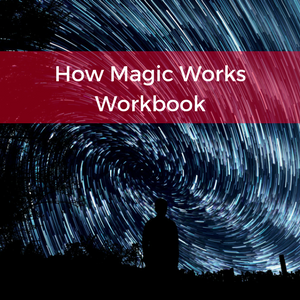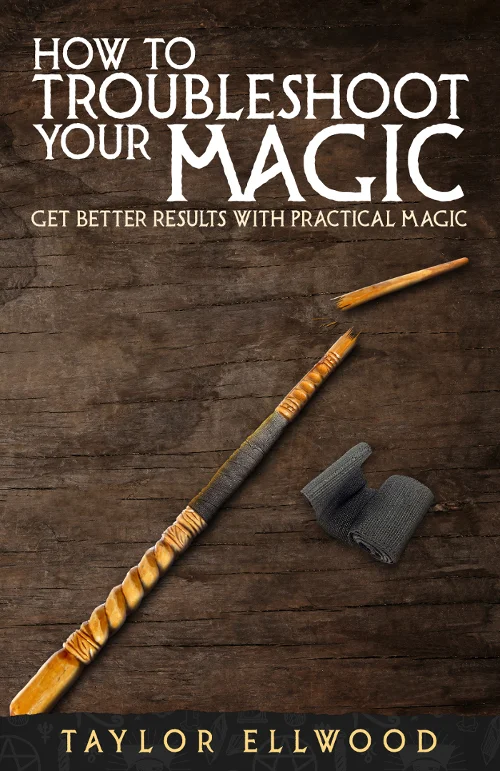 Megalithica Books, an imprint of Immanion Press (Stafford, U.K./Portland, OR, U.S.A) is seeking submissions.
Megalithica Books, an imprint of Immanion Press (Stafford, U.K./Portland, OR, U.S.A) is seeking submissions.
We would like to hear from founders and leaders of as many different traditions and organizations, established and brand new, as possible.
Deadline for submissions is March 1, 2015.
By no means can we capture a portrait of every Pagan path. What we are trying to do is give aspiring and knowledgeable Pagans alike a springboard for proceeding with their studies, with information and stories from a wide selection of Pagan traditions.
We are looking specifically for articles and stories from tradition/organization leaders and founders as well as other leaders who have a wider view of the Pagan landscape.
Below are descriptions of the concepts we would like to appear in articles submitted for the anthology. This is generally academic, but personal stories within the pieces are highly encouraged.
To ensure thorough and accurate descriptions of your path, what you see below are not so much suggestions for essay topics as they are questions that we would like answered within essays, so that all pieces are validated in the eyes of the reader, and because consistency lends itself well to comprehension and comparison.
For the well-established tradition leader (Gardenerian, Vanatru, Alexandrian, Correllian, Asatru, eclectic Wicca, Helenist and Celtic Reconstruction, Stregheria, etc) we would like to know the basic structure of the tradition you come from. What types of magic you teach? What are some of the basic tenants and values of your tradition? How are groups structured? How study might differ for a solitary practitioner? How you have adapted the path based on your own experiences to fit your lifestyle? Try to come at it from a perspective of teaching students. Please give us a clear portrait of your path, and a little of your personal story so readers can relate. If you can, cite various in-depth texts at least twice in your work. This opens the door for further study by the readers.
We also want to hear from the young traditions/organizations being created as we speak. This is the place for founders wishing for future students. What inspired you to create a new Pagan path? From what cultures, religions, and traditions do you gather your concepts from? How do your morals and values play into the tradition? What would be the structure of a participant’s studies? What are rituals like and what types of magic are practiced? Please try to cite various in-depth sources of your concepts at least twice in the piece, for validation of where you are coming from.
There are many leaders out there who lead groups that are not strictly based around one tradition or belief system, or are just well-known voices in Pagan forums. Give us your perspectives on some various topics such as: the rise and fall of Pagan traditions in modern times; the levels of dedication needed for truly embracing a Pagan tradition and the various emotional, spiritual, and mundane changes they bring with them; a sense of Pagan demographics. If you can cite texts for validity, please do.
–We would like to hear from a few people who practice two greatly divergent traditions as part of their path. This could be Alexandrian Wicca combined with Chemetism, or other such combinations. You are charged with showing a reader that taking a road like this may be challenging, but it can be done well. Some of the questions we would like answered in these pieces are: How do the tenets, magical practices, spiritual tasks, and forms of study from two different traditions mesh together? How did you choose a road like this, and what are the challenges you face? Please cite two in-depth sources within your work, at least one for each of the different traditions you follow.
What we are not looking for:
–We are not looking for spiritual awakening stories or stories of how you found Paganism. We also are not after how you take what you learn from established traditions and alter it in solitary practice, unless you are forging a new branch of that tradition and have well-formed practices, values, and ways for people to learn in place and can discuss them with clarity.
–We are not looking for specific rituals or spells.
Essay requirements:
2500-5000 words, to ensure that there is sufficient knowledge and details presented. If your piece falls outside these limits, come to us and we can discuss it.
- Citations for all quoted, paraphrased, or otherwise unoriginal material
- Bibliography of works cited
- Prefer the Modern Language Association (MLA) Style http://www.library.cornell.edu/resrch/citmanage/mla
- A way to contact your tradition or organization so those interested may do so (if applicable).
- Send the file in RTF format.
Compensation:
Accepted contributors will receive a free copy of the anthology when it is published and additional copies sold at 40% off the cover price to contributors. All contributors will be provided with a contract upon final acceptance of their essays.
Rights:
This anthology will take nonexclusive first world rights for 6 months.
Deadline is March 1, 2015.
For submissions and questions, please contact CJ Blackwood (cjblackwood90@gmail.com). Please put “Immanion anthology submissions” in the subject line.
Editors: The anthology will be edited by CJ Blackwood and Tara “Masery” Miller:
CJ Blackwood is a contributor for the Staff of Asclepius blog on patheos.com. She also authors another blog, Tales of a Feminist Elemental Witch on WordPress. She has been teaching crystal workshops at Pagan Pride events in Illinois for two years and will be presenting an “Awakening the Goddess Within” ritual from her own feminist elemantal tradition this year at Central Illinois Pagan Pride Day. She writes fiction and poetry, and enjoys crafts, fishing, traveling, and spending time with friends. She graduated from Illinois State University with a major in journalism and a minor in English. She contributed to “rooted in the Body, Seeking the Soul: Magic Practitioners Living With Disability, Addiction, and Illness” under the name Lady Cedar Nightsong.
Tara “Masery” Miller is a panentheist Gaian mage who has a deep relationship with the Goddess Gaia. I’ve been involved with Pagan Pride Day, the Pagan Leaders Recommended Reading list with Elizabeth Barrett, and other wonderful magic circles over the years. She graduated from Southeast Missouri State University with a degree in mass communications specifically media studies and research and a minor in religion. Part of her course work included an independent study of mysticism in Christian, Pagan, and Native American traditions and a paper on Witchcraft in Colonial America. She was the editor of “Rooted in the Body, Seeking the Soul: Magic Practitioners Living with Disabilities, Addiction, and Illness.” She is also the editor of the Staff of Asclepius blog. http://www.patheos.com/blogs/paganswithdisabilities/ Her personal website is http://taramaserymiller.com/
Immanion Press is a small independent press based in the United Kingdom. Founded by author Storm Constantine, it expanded into occult nonfiction in 2004 with the publication of Taylor Ellwood’s Pop Culture Magick. Today, Immanion’s nonfiction line, under the Megalithica Books imprint, has a growing reputation for edgy, experimental texts on primarily intermediate and advanced pagan and occult topics. Find out more at http://www.immanion-press.com.











